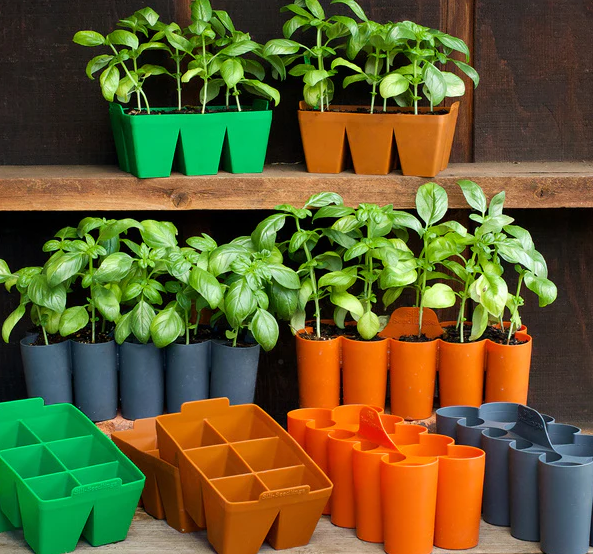How do You Use Planting Trays?
Have you ever wondered how expert gardeners achieve lush, thriving plants from seeds? This gardening feat begins with an unassuming tool: planting trays. In this comprehensive guide, we'll delve into the world of planting trays, demystifying the seed-starting process, and sharing tips for gardening success.
Planting Trays: A Green Start
Gardening is a cherished hobby, but seed starting used to baffle me. My plants were leggy, weak, and often didn't make it. Everything changed when I discovered the magic of planting trays. Now, I'm excited to unveil this gardening secret.

Section 1: Planting Trays Unveiled
1.1. Exploring Planting Trays
Planting trays are shallow, flat containers featuring multiple small cells or compartments. Their purpose? Starting seeds and nurturing seedlings until they're ready for transplanting into your garden.
1.2. Diverse Types of Planting Trays
Planting trays come in various forms, including cell trays, plug trays, and nursery flats, each serving a specific purpose, from individual seed starting to bulk propagation.
Section 2: Starting Right
2.1. Selecting the Ideal Growing Medium
Fill each cell or compartment with a seed-starting mix. This lightweight, sterile medium ensures optimal aeration and moisture retention, promoting strong seedling growth.
2.2. Precision in Sowing Seeds
Adhere to seed packet instructions for correct seed depth and spacing. Planting trays allow precise seed placement, creating the best conditions for successful germination.
2.3. Nurturing with Adequate Watering
Ensure the soil is lightly moistened. Planting trays often include humidity domes, creating a mini-greenhouse effect, and maintaining consistent moisture levels for your seedlings.
Section 3: Creating the Perfect Environment
3.1. Temperature and Light Management
Position your planting trays in a warm, well-lit location. Maintaining a steady temperature between 70-75°F (21-24°C) fosters robust seedling growth.
3.2. Providing Adequate Ventilation
As seedlings emerge, introduce ventilation by partially opening the humidity dome. This prevents mold and encourages sturdy growth.
Section 4: Transplanting with Care
4.1. Handling Seedlings
When your seedlings develop several true leaves, they're ready for transplanting. Gently hold them by the leaves to avoid damaging their delicate stems as you remove them from the planting tray.
4.2. Transitioning to the Garden
Plant your seedlings in the garden or in larger pots filled with potting soil. Ensure they have sufficient spacing and water them thoroughly post-transplantation.
Section 5: Post-Planting Cleanup and Storage
5.1. Post-Use Maintenance
After every use, clean your planting trays meticulously to prevent the spread of diseases. Soak them in a solution consisting of one part bleach to nine parts water, rinse them thoroughly, and allow them to dry.
5.2. Storing for Future Use
Extend the lifespan of your planting trays by storing them in a dry, cool area. Proper storage guarantees they'll be ready for your next gardening venture.
In Conclusion: Commence Your Gardening Journey
Planting trays holds the key to cultivating a thriving garden from seeds. By mastering their use, you can look forward to a bountiful harvest and a vibrant assortment of blooms. So, take the first step in your gardening journey, nurture your seedlings, and witness your garden flourish.
Embark on Your Seed-Starting Adventure
Now that you've uncovered the secrets of using planting trays, it's time to put your newfound knowledge into action. Grab your trays, select your favorite seeds, and commence your journey toward growth, beauty, and a flourishing garden. Happy gardening!
Let's Get Our Hands Dirty
Whether you're a seasoned gardener or just starting your green journey, planting trays are your hidden ally for successful seed starting. Dive in, nurture those tiny seedlings, and watch your garden thrive—a realm of botanical wonders awaits.



